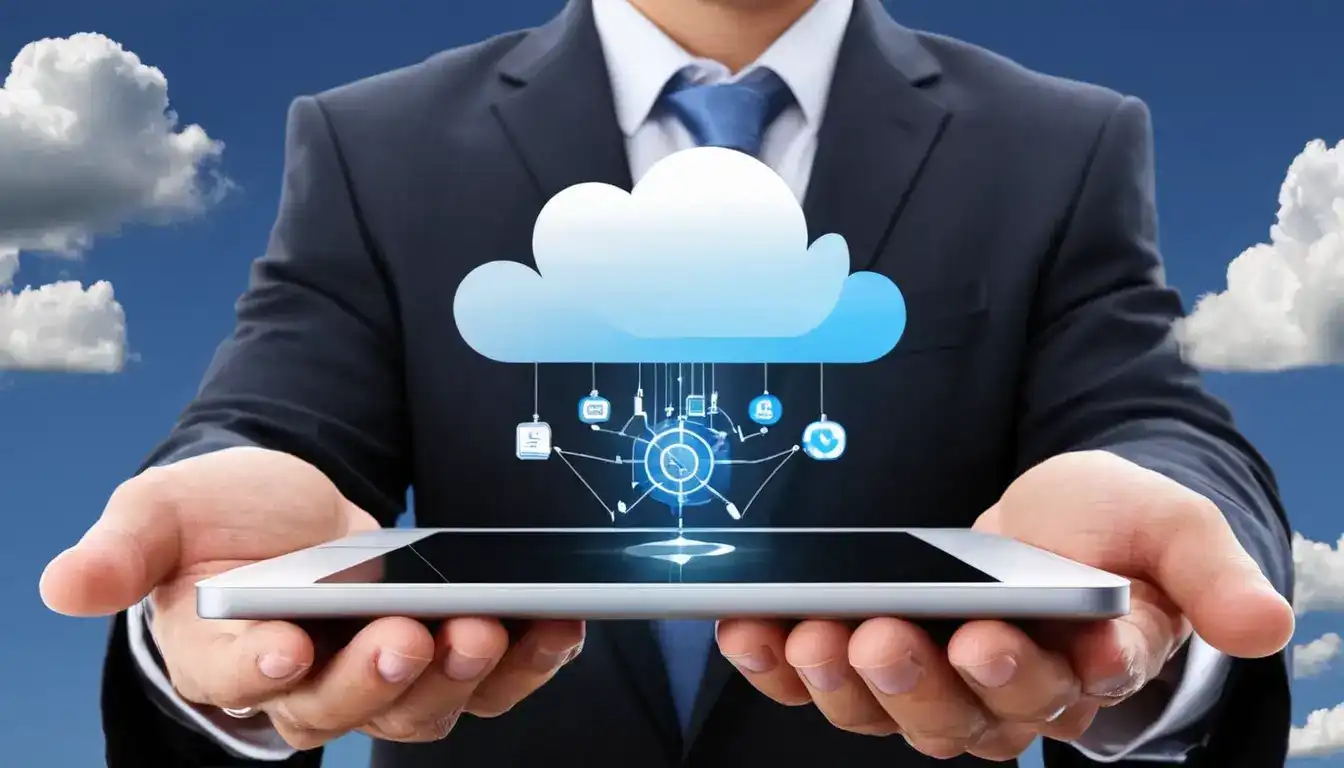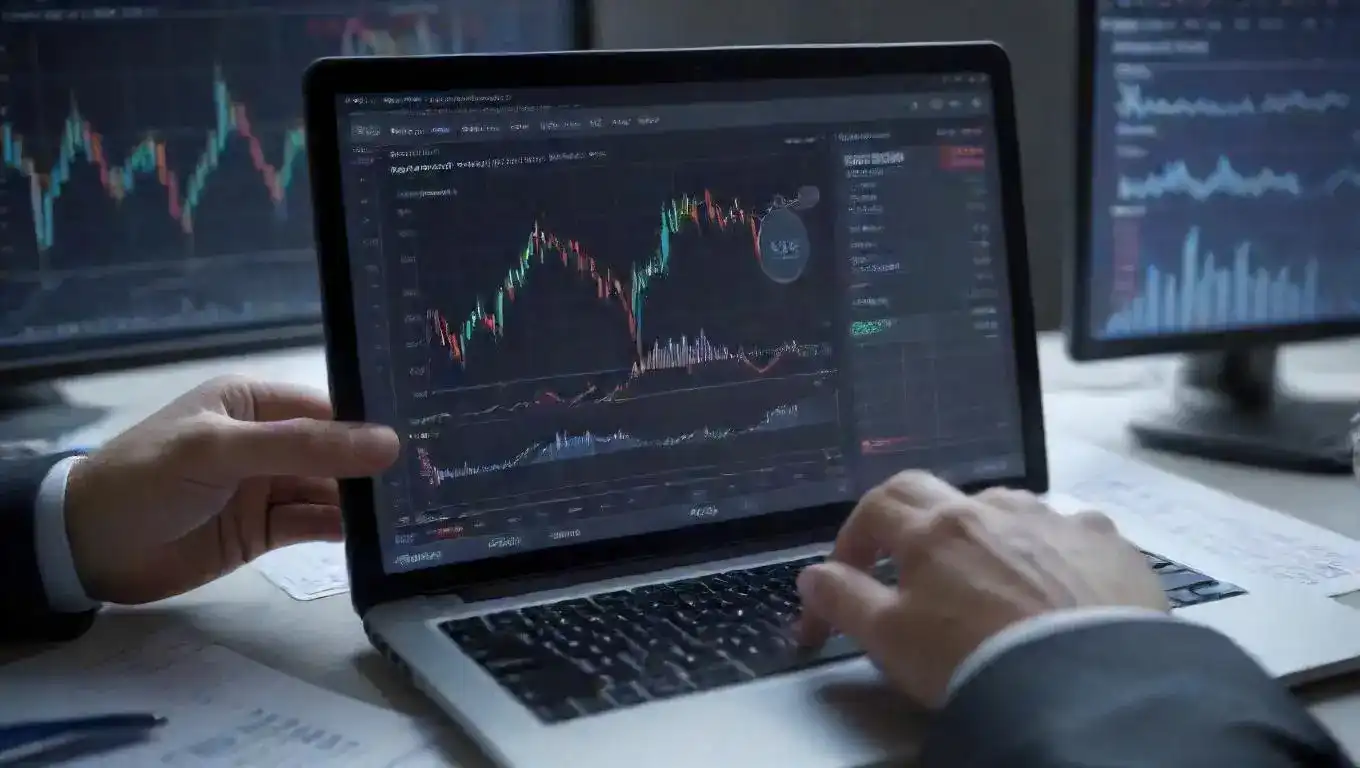Blockchain Applications in Various Fields
Emily Willis

Photo: Blockchain Applications in Various Fields
Blockchain technology, initially known for powering cryptocurrencies like Bitcoin, has evolved significantly, finding applications across diverse industries beyond finance. This revolutionary technology offers transparency, security, and decentralization, making it suitable for transforming various sectors. Let's explore how blockchain is being utilized in different fields and its potential implications.
1. Financial Services
Blockchain's impact on financial services extends beyond cryptocurrencies:
Cross-Border Payments: Blockchain enables faster and cheaper cross-border transactions by eliminating intermediaries and reducing transaction fees.
Smart Contracts: Automate contract execution and enforce terms without intermediaries, enhancing efficiency in financial agreements.
Tokenization of Assets: Real-world assets such as real estate and art can be tokenized on blockchain, facilitating fractional ownership and liquidity.
2. Supply Chain Management
Blockchain enhances transparency and traceability in supply chains:
Provenance Tracking: Records every step of a product's journey from raw materials to final delivery, reducing counterfeit goods and enhancing accountability.
Inventory Management: Improves inventory visibility and reduces inefficiencies by providing real-time data on stock levels and demand.
Supplier Auditing: Streamlines auditing processes by providing immutable records of supplier transactions and compliance.
3. Healthcare
Blockchain offers solutions to challenges in healthcare data management:
Medical Records: Secures patient data, allowing healthcare providers to access comprehensive medical histories securely and efficiently.
Clinical Trials: Ensures transparency and immutability of clinical trial data, enhancing trust and compliance with regulatory standards.
Drug Supply Chain: Tracks pharmaceuticals from manufacturer to patient, reducing counterfeit drugs and ensuring authenticity.
4. Government and Public Sector
Governments are exploring blockchain for various applications:
Voting Systems: Enhances election transparency and security, mitigating risks of fraud and manipulation.
Identity Management: Provides secure, decentralized digital identities, reducing identity theft and improving access to government services.
Public Finance: Improves transparency in public spending and reduces corruption through blockchain-enabled audits and transactions.
5. Energy Sector
Blockchain innovations are reshaping the energy landscape:
Peer-to-Peer Energy Trading: Allows consumers to buy and sell energy directly from each other, optimizing energy distribution and reducing costs.
Grid Management: Enhances grid efficiency and reliability by integrating renewable energy sources and managing energy demand in real-time.
Carbon Credits: Tracks and trades carbon credits transparently, incentivizing sustainable practices and reducing carbon footprints.
6. Real Estate
Blockchain is disrupting traditional real estate practices:
Property Transactions: Facilitates faster and more secure real estate transactions through smart contracts, reducing paperwork and transaction costs.
Property Ownership: Ensures transparent and immutable records of property ownership, reducing disputes and fraud.
Fractional Ownership: Enables investors to own fractions of properties, increasing liquidity and accessibility to real estate markets.
7. Education
Blockchain applications in education aim to improve credential verification and educational access:
Credential Verification: Authenticates academic credentials and certifications, reducing fraud and simplifying the verification process for employers and institutions.
Microcredentialing: Offers decentralized platforms for issuing and verifying microcredentials and lifelong learning achievements.
Access to Education: Enables secure and transparent distribution of educational resources and funding, particularly in remote or underserved areas.
Future Trends and Challenges
While blockchain offers numerous benefits, challenges such as scalability, regulatory uncertainties, and energy consumption must be addressed for widespread adoption. Future trends include interoperability between different blockchain networks, integration with Internet of Things (IoT) devices, and advancements in privacy-preserving technologies.
Conclusion
In conclusion, blockchain technology holds immense promise across various industries, offering solutions to longstanding challenges through transparency, security, and decentralization. As adoption grows and innovations continue, blockchain's role in reshaping economies and improving efficiencies will likely expand, ushering in a new era of trust and collaboration.
Latest ✨
View AllArtificial Intelligence (AI) has evolved rapidly from science fiction to reality, offering immense potential but also presenting significant ethical challenges.
Emily Willis
Virtual reality (VR) and augmented reality (AR) are transforming the entertainment industry by offering immersive experiences that blur the lines between the real and virtual worlds. VR completely transports users into computer-generated environments, while AR overlays digital elements onto the real world.
Emily Willis
In today's job market, academic qualifications alone are not enough for success. Employers value soft skills such as communication, leadership, and teamwork. Educational settings provide opportunities for students to develop these skills. Strong communication skills enable effective collaboration and understanding. Presentation and public speaking skills enhance professionalism and credibility. Leadership skills involve setting goals, making decisions, and inspiring others. Teamwork skills are important for building relationships and achieving shared goals. Developing these skills in an educational environment prepares individuals for successful careers by enhancing employability and job readiness. Soft skills development is an ongoing process that promotes continuous learning and growth. By emphasizing the importance of soft skills, educational institutions empower students to succeed in a complex and interconnected world.
Emily Willis
fostering a love of reading in early childhood and provides practical tips to achieve this. It emphasizes starting early, making reading fun and interactive, integrating reading into daily activities, and addressing challenges with reluctant readers.
Emily Willis
Business
View All
August 5, 2024
The Importance of Having Insurance to Protect Yourself and Your Assetsinsurance in protecting individuals and businesses from financial losses due to unforeseen events. It explains the different types of insurance available, such as health, life, auto, homeowners, renters, disability, and liability insurance, and their benefits.
Emily Willis

August 5, 2024
How to Create Engaging Content and Convert Visitors to Customerscreating engaging content to attract and retain customers in the digital age. It provides strategies for understanding the audience, setting content goals, creating high-quality content, using storytelling and emotional connection, and optimizing content for conversions. It also covers content formats and distribution, measuring and analyzing content performance, and building relationships with influencers and user-generated content.
Emily Willis

August 4, 2024
How to Build a Strong Brand Identity for Your BusinessBuilding a strong brand identity is essential for business success as it helps differentiate you in the market, connect with your audience, and build loyalty. Key steps include understanding your target audience, defining your mission and values, developing a unique selling proposition, creating a memorable brand name and logo, choosing brand colors and typography, crafting a brand voice and messaging, ensuring a consistent brand experience, leveraging visual content.
Emily Willis
Economy
View Allchallenges and opportunities presented by economic uncertainty and explores strategies that governments and businesses can implement to mitigate risks, ensure stability, and pave the way for future success.
Read MoreGlobal inequality refers to the unequal distribution of wealth, income, and opportunities across the world, leading to economic, social, gender, and regional disparities. The consequences of this inequality are widespread, impacting social unrest, political instability, economic stagnation, and environmental degradation.
Read MoreDiscover the hidden connections that drive global stock markets. Explore stock correlations, their impact on diversification and risk, and how to calculate them. Learn how to apply this knowledge to your investment strategy and uncover secrets to making more informed decisions.
Read MoreEntertainment
View All
August 5, 2024
Music Universal Language: Connecting and Inspiring Across CulturesMusic has the power to transcend language barriers and connect people on a deep emotional level. It serves as a bridge between cultures, fostering understanding and appreciation for diversity. The universality of rhythm and melody creates a sense of unity, while the diversity of musical styles allows for exploration and creativity.
Emily Willis

August 4, 2024
Virtual Music Concerts: The Future of Live Performance?The music industry has seen significant changes in recent years, with virtual music concerts becoming a popular trend, especially due to the impact of the COVID-19 pandemic. Technological advancements have made virtual concerts more accessible and cost-effective, while also reducing the environmental impact of live events. However, challenges such as technical issues and the lack of physical presence remain. The future of virtual concerts may involve hybrid models that combine virtual and physical experiences, as well as continued technological innovation to enhance the quality of virtual performances. Building a sense of community and engagement will also be crucial for the success of virtual concerts moving forward.
Emily Willis

August 4, 2024
The Latest Music Trends, Artists Influencing Pop Culture, and How Digital Platforms Facilitate the Distribution of Music GloballyThe music industry is constantly changing due to consumer preferences, technology, and the influence of artists. Digital platforms have revolutionized music creation, distribution, and consumption, leading to genre fusion, the rise of independent artists, and collaborative projects. Influential artists like Billie Eilish, BTS, and Taylor Swift have shaped pop culture globally. Streaming services, social media, and direct-to-fan engagement have transformed music distribution. Digital platforms also promote cultural diversity and inclusivity, expand markets and revenue, and drive technological advancements. The industry is also focusing on sustainability and ethical practices. To succeed in the future, stakeholders must embrace digital transformation and champion inclusivity.
Emily Willis
Health
View AllA healthy lifestyle is crucial for enhancing overall quality of life in today's fast-paced world. It involves habits such as a nutritious diet, regular exercise, adequate sleep, stress management, and avoiding harmful substances. Benefits include improved physical health, enhanced mental well-being, increased energy levels, better sleep quality, and longevity. Implementing healthy habits gradually, staying consistent, seeking support, and monitoring progress are key steps towards a healthier lifestyle. Prioritizing a healthy lifestyle is not just about adding years to life but about adding life to years, leading to a more fulfilling and vibrant life.
Emily Willis
cultivating healthy lifestyle habits to improve overall well-being. It focuses on three pillars of well-being: nutrition, exercise, and sleep. It provides tips on how to incorporate these practices into daily routines, such as eating a variety of foods, finding enjoyable forms of exercise, and establishing a consistent sleep schedule.
Emily Willis
Heart disease is a leading cause of death globally, but early detection and prevention strategies can reduce its impact. This article discusses the importance of early detection, common risk factors, preventive measures, and lifestyle changes for heart health. Understanding heart disease, recognizing symptoms, and undergoing regular screenings are crucial. Common risk factors include high blood pressure, high cholesterol, diabetes, smoking, obesity, physical inactivity, and family history. Symptoms of heart disease include chest pain, shortness of breath, fatigue, irregular heartbeat, and swelling. Diagnostic tests and screenings include blood pressure measurement, cholesterol screening, blood glucose test, ECG, stress test, and imaging tests. Preventive measures include adopting a heart-healthy diet, regular physical activity, quitting smoking, managing stress, maintaining a healthy weight, and limiting alcohol consumption. Medications and treatment options may be necessary for individuals at high risk or diagnosed with heart disease.
Emily Willis
Trending 🔥
View All
2
3
4
5
6
7
9
10
Lifestyle
View AllSports
View AllAugust 4, 2024
The Importance of Mental Training and Psychological Strategies in Helping Athletes Reach Their Peak Performance on the Field
Read MoreAugust 5, 2024
Celebrating Sports Legends: Honoring Iconic Figures and Their Enduring Impact
Read MoreTechnology
View All
August 4, 2024
The Future of Artificial Intelligence: Opportunities and Challenges
opportunities and challenges presented by Artificial Intelligence (AI) in various sectors such as efficiency, customer experiences, healthcare, education, and economic growth. It highlights the need to address ethical considerations, job displacement, privacy issues, security risks, and regulatory challenges associated with AI.

August 4, 2024
Bridging the Digital Divide: Ensuring Everyone Has Access to Technology
we can bridge this gap and create a more inclusive digital landscape.

August 4, 2024
The Role of 5G Technology in Revolutionizing Communication
The introduction of 5G technology is set to revolutionize communication by offering faster speeds, lower latency, and increased capacity for connecting devices. This technology will impact various sectors such as healthcare, transportation, and entertainment. 5G enhances communication through faster speeds, lower latency, and increased capacity, enabling applications like remote surgery, autonomous vehicles, and high-quality streaming.

August 4, 2024
Role of Cloud Computing Technology in Modern Business
Cloud computing technology has become essential for modern businesses, offering cost efficiency, scalability, and flexibility. It enables streamlined processes, enhanced productivity, and improved collaboration among employees. Cloud computing also ensures data security, disaster recovery, and business continuity. By migrating to the cloud, businesses can streamline IT operations, enhance customer experiences, access advanced technologies, and reach a global audience. Real-world applications of cloud computing include e-commerce, healthcare, financial services, manufacturing, and education.





















